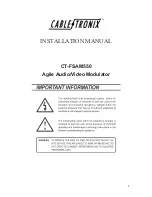
E-19
The following shows the range for each of the coefficients (
a
,
b
,
c
,
d
,
e
,
f
).
1
<
a
< 100, 1 <
b
< 1000, 1
<
c
< 100
0
<
d
< 100,
0
<
e
< 1000,
1
<
f
< 100
Example:
The underlined areas in the above examples indicate what caused
decimal form to be used.
Reasons why the results of the examples are displayed in
decimal form
- Value outside of the allowable range
- More than two terms in the calculation result
• Calculation results displayed in
'
form are reduced to a common
denominator.
•
c
′
is the least common multiple of
c
and
f
.
• Since calculation results are reduced to a common denominator,
they are displayed in
'
form even if coefficients (
a
′
,
c
′
, and
d
′
)
are outside the corresponding ranges of coefficients (
a
,
c
, and
d
).
Example:
• The result is displayed in decimal form even when any intermediate
result has three or more terms.
Example: (1 +
'
2 +
'
3 )(1 –
'
2 –
'
3 )(= –4 – 2
'
6 )
= –8.898979486
2
'
3
×
4 = 8
'
3
35
'
2
×
3 = 148.492424
(= 105
'
2)
150
'
2
= 8.485281374
25
2
×
(3 – 2
'
5 ) = 6 – 4
'
5
23
×
(5 – 2
'
3 ) = 35.32566285
(= 115 – 46
'
3 )
10
'
2 + 15
×
3
'
3 = 45
'
3 + 10
'
2
15
×
(10
'
2 + 3
'
3 ) = 290.0743207
(= 45
'
3 + 150
'
2 )
'
2 +
'
3 +
'
8 =
'
3 + 3
'
2
'
2 +
'
3 +
'
6 = 5.595754113
'
form
decimal form
'
form
decimal form
'
form
decimal form
'
form
decimal form
a
'
b
+
d
'
e
c
a
′
'
b
+
d
′
'
e
c
′
f
→
'
3
+
'
2
=
10
'
3 + 11
'
2
11
10
110
















































